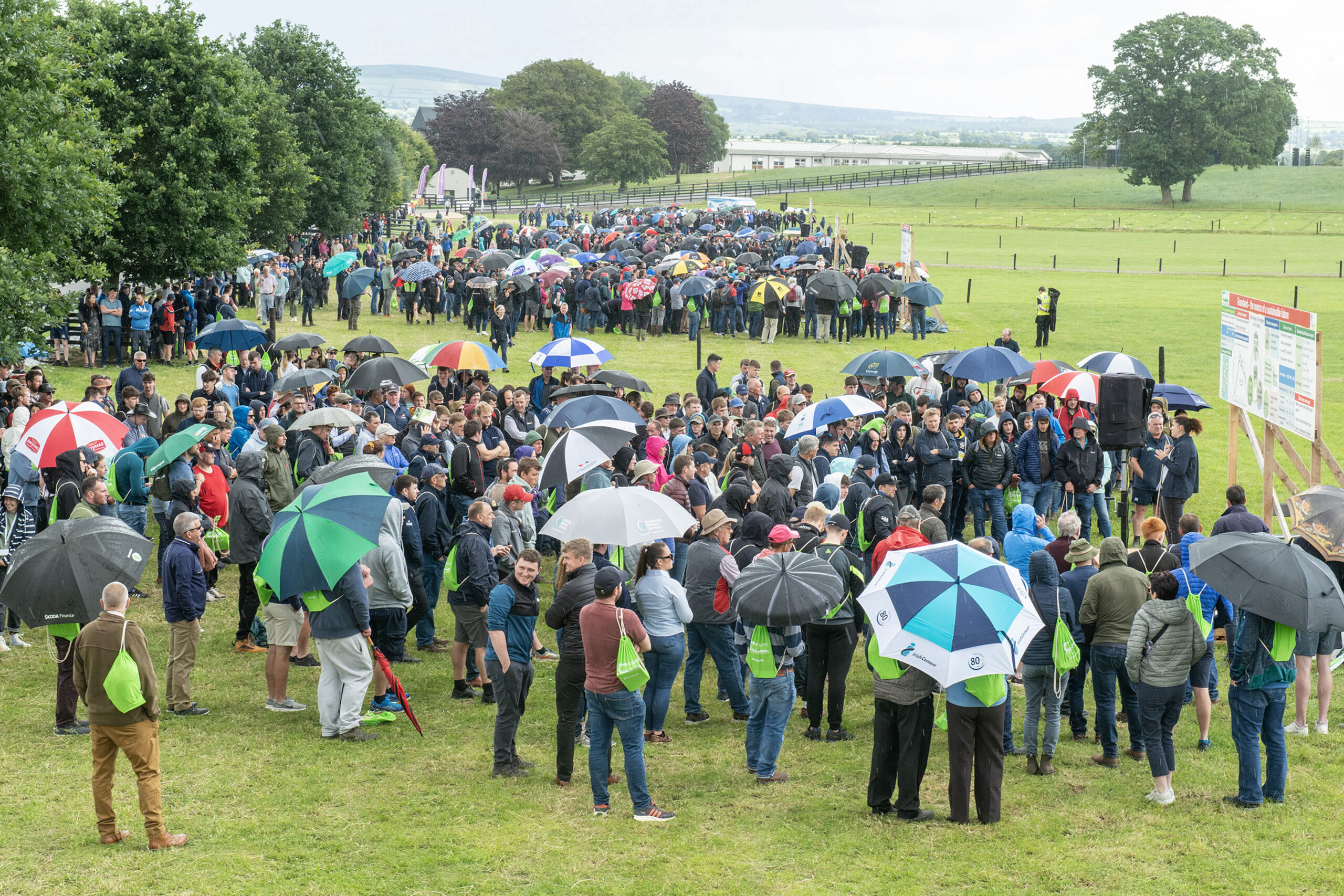07 July 2023
Massive numbers of Dairy Farmers attend Teagasc Moorepark’23 Open Day
Thousands of dairy farmers attended Moorepark’23, the Teagasc National Dairy Event for 2023, which took place earlier this week at the Teagasc, Animal & Grassland Research and Innovation Centre, Moorepark, Fermoy, Co. Cork. Securing a Sustainable Future was the theme of this major Teagasc Open Day.

Research to underpin the Economic, Social and Environmental sustainability of the grass-based Irish dairy production system was on display right across the campus in Moorepark.
Speaking at the Moorepark Dairy Open Day, Teagasc Director Professor Frank O’Mara, said; “Dairy farmers had a good year in 2022 but there are challenges this year with the adjustment in the price of milk. There are huge levels of engagement from farmers with the available technologies on display to help them to maximise their competitiveness while at the same time to reduce their emissions, protect water bodies and improve biodiversity on their farms. On this farm here in Moorepark, there have been over 4 kilometres of new hedgerows planted in recent years and 3 hectares of woodlands. Nationally, farmers reduced their nitrogen fertiliser use by 14 per cent last year, and farmers are adopting the technologies to further reduce chemical nitrogen by incorporating white and red clover into their farming systems and by using low emission slurry spreading techniques to optimise the efficient use of nutrients in animal manures.”
Head of the Teagasc Animal and Grassland, Research and Innovation Programme, Professor Laurence Shalloo, spoke about the three pillars of sustainability – Economic, Social and Environmental. In terms of social sustainability, he spoke about the importance of people in dairy farming and the research that has been conducted around managing daily and weekly workloads, and succession planning. He also pointed out the importance of decisions related to land use, the importance of maintaining high animal welfare standards and the opportunities to develop the Dairy Beef sector. Professor Shalloo spoke about both the Nitrates Directive and the low carbon footprint of Irish milk.
Dr Deirdre Hennessy, Lecturer in Sustainable Agriculture at University College Cork, urged farmers to adopt the practical technologies that are available today and can be implemented on their farms. She said; “This is really a call to action to farmers. We all have to take responsibility in terms of helping to achieve the climate targets. There are technologies that are ready and available and can be adopted today. There are also technologies being developed for tomorrow, and on-going research work that will be published in the future that will contribute to country specific emissions factors. One scientific paper under review is showing that the measured emissions for methane are lower across the grazing season in spring and summer than the calculated value currently being used.”
Teagasc Researcher Professor Stephen Butler outlined the progress made with the use of sexed semen to breed dairy replacement heifers and allow greater usage of beef genetics on the rest of the dairy herd. He said that over 250,000 sexed semen straws were available to herd owners this year to breed dairy replacement heifers. For all replacement heifers to be generated using sexed semen, approximately 800,000 sexed semen straws need to be used each year, so we are already one third of the way toward this target. This would reduce the percentage of male dairy calves down to approximately 3% of the total calf crop.
View the open day booklet here and view the main information boards and videos here
The dairy open day was sponsored by FBD, and supported by Ornua and AIB.
